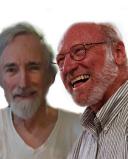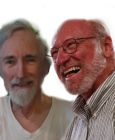Deception
We Are Inured to Lies
Why do so many people today accept lies and why aren't liars shamed?
Posted November 16, 2020 Reviewed by Lybi Ma
The media have recently kicked up a fuss about the lies and misleading information that have permeated political discourse in the last few years. The conservative media rail against fake news and propose conspiracy theories, while the liberal media rail against conspiracy theorists and their lack of evidence. But not everyone seems to care. It apparently doesn’t matter to many people that a claim or an accusation is made without evidence. A bald-faced lie, even when identified as such, doesn’t necessarily shame the liar.
What’s going on? The ability to detect cheaters—people who purposefully set out to deceive and exploit—is part of the legacy of human evolution. Humans refined this ability over thousands of years during which cooperation was essential to survival and cheating individuals threatened the entire group.
As Leda Cosmides (1989) conclusively demonstrated using the Wason Selection test, humans are particularly good at detecting cheaters. Furthermore, the ethnographic record indicates that hunter-gatherers were keen on catching and punishing liars and cheaters. In an earlier post (“Why Socialism Fails”) we mentioned Cephu, the Mbuti hunter who tried to get more than his share in a hunt. He was castigated in front of the entire band and forced to surrender all his ill-gotten meat.
What has happened? Why isn’t everyone today filled with righteous anger in the face of lying and cheating? Why do liars and cheaters so often get away with little more than a tut-tut or a shake of the head? Why are lies so often believed?
We suspect that features of modern technological society have inured people to lying, misrepresentation, and cheating. Television advertising has been a chief offender. TV has been ubiquitous in developed countries for nearly 70 years; regular TV watchers may have seen hundreds of thousands, if not millions, of commercials. Some commercials are outright lies, others misrepresent reality in less obvious ways. For example, actors pretend to use the products or services being advertised to simulate reality, and they are very good at employing facial expressions, body language, and tone of voice to make the pitch. In fact, Bryan Urbick, Director of Research Consultancy at the Consumer Knowledge Centre (CKC), says that “[fictional advertising] characters tend to be more real than real people” (quoted in Costa, 2010). Creating an alternate reality may make marketing sense, but blurring the line between reality and fiction is apparently short-circuiting the warning signs we are supposed to get when someone tries to fool us.
With the advent of the internet and social media, the opportunities to lie, cheat, and misrepresent have increased exponentially. The recent QAnon phenomenon is a good example. In 2017 an anonymous post on 4chan by “Q,” someone who claimed to be a highly placed government official, described a cabal of cannibalistic pedophiles who were running a child sex-trafficking ring and plotting against the President. There is absolutely no evidence for these assertions, but that didn’t stop people from swallowing them. QAnon groups on Facebook have more than 3 million followers.
Social media undermine cheater detection in another way. They provide social support for just about any lie or misleading message that pops up in somebody’s mind. As many researchers have shown, what individuals believe is strongly influenced by what others around them believe. Jonathan Haidt (2012) has a fascinating analysis of this phenomenon. With social media, virtually anyone can find confirmation of his or her views, no matter how outrageous. With such confirmation, cues about truth or falsehood fade into insignificance.
Our hunter-gatherer ancestors bequeathed us with a remarkable ability to detect lying and cheating. That ability made it possible for them to “avoid squandering costly future cooperative efforts on those who will exploit rather than reciprocate” (Cosmides et al 2010). However, that ability has been compromised by technologies that can make lying and cheating seem more real than reality, opening the door wide for those who want to exploit.
References
Cosmides, Leda. 1989. “The logic of social exchange: Has natural selection shaped how humans reason? Studies with the Wason selection task.” Cognition. 31(3), 187–276. https://doi.org/10.1016/0010-0277(89)90023-1
Cosmides, Leda; H. Clark Barrett, and John Tooby. 2010. “Adaptive specializations, social exchange, and the evolution of human intelligence.” PNAS May 11, 2010. https://doi.org/10.1073/pnas.0914623107
Costa, Marylou. 2010. “Brand characters can bring home the bacon.” Marketing Week. November 9th. https://www.marketingweek.com/brand-characters-can-bring-home-the-bacon
Haidt, Jonathan. 2012. The Righteous Mind: Why Good People Are Divided by Politics and Religion. Pantheon Books, NY.


